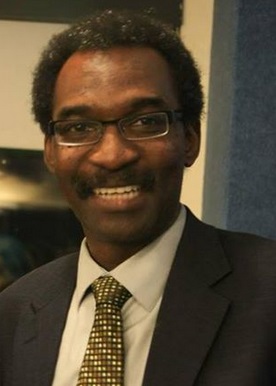| 07-31-2013, 01:17 AM |
ШөЩ„Ш§Шӯ ШҙШ№ЩҠШЁ
 ШөЩ„Ш§Шӯ ШҙШ№ЩҠШЁ ШөЩ„Ш§Шӯ ШҙШ№ЩҠШЁ
Registered: 04-24-2005
Total Posts: 2954
|
|
 The current Power Struggle in Egypt The current Power Struggle in Egypt
|
The problem is not only in the troubled and dejected Egypt which suffers now from the atmosphere of political transition. Rather, it is in the entire Islamic world which will, sooner or later, face such a tireless conflict between the liberal camp and the one that suggests the connection between state and religion.
This new conflict embodies the culmination of failures of Islamic societies with a sort of connection to international intervention. Although, part of the world is apparently involved in the internal matters of Islamic countries, but we do not know, in detail, the mass of secret intervention that Islamists, and others, see as a conspiracy theory.
As Islam, the creed and experience, is a main factor for this societal mess, it is also so innocent in another exegetical inquiry. However, one may consider religious interpretation is the responsibility of believers, not God.
In effect, the former president Mohamed Morsi and Gen Abdulfattah al-Sisi are not the leaders of the two camps but represent the figures of superstructure that do mutual resistance. While motivated by groups, generations, disappointments, insights, ideologies, and so on, the two rivals, appareling to confront each otherвҖҷs authority, just happened to be in the surface of that political skirmish.
Those who describe the conflict as if it is between the Muslim brotherhoodвҖҷs viewpoint and the liberalвҖҷs are indeed right, but the deep conflict requires first studying the impact of tyranny stages in the Islamic world.
We all know that the transition from these stages to a social spectrum accepting freedom acts needs a kind of patience even if it may delay the state-building process.
Opposing to the traditional Islamic knowledge, the identification of the political Islam which tries to modernize Islam is not more than a crisis in essence. Since such a version of Islamic identification is based on the interpretations that had been issued nearly a century ago, then Islam, the most religion that calls for its renewal from time to time, will be just reproducing that problematic Islamic knowledge.
On the other hand, those who advocate the liberalization of state also showed us that they want, in return, to transfer the experiences of Western countries вҖ“ without depending on a religious legitimacy - to the Islamic conservative environments, which harbor political Islam more than any other politically well-organized, thought.
In fact, the Tahrir Square rally was looking just for legitimacy of rule in light of the military power, which inherited MorsiвҖҷs short period of governance. But in a situation such as this the rally remains under democratic questions marks, as long as it tries to get that legitimacy from undemocratic institutions.
Moreover, the liberal group seeking legitimacy from an unsafe military, will not gain the expected outcome from a situation that is further escalating with violence and sharp disagreement. Subsequently, the other side will find violence as a means to encounter such undemocratic exercises, as it suggests.
At the time Muslim contemporary scholars have failed in achieving an acceptable interpretation to the holy Quran to Muslims and none Muslims to face the challenges of the 21st century the whole Islam will really be, in this age, subjected to numerous tests. Moreover, Islamic conflicts about the function of religion generally will produce serious shifts in the structure of the state, to an extent that it may lose its impact.
The great paradox now is that the ideology of the Muslim Brotherhood does not have anything to offer regarding the essential reforms of these evolving Muslim environments. Despite all these facts, considerable segments of the young Muslims give such an ideology a big support.
In light of the great vacuum in political ideas, opposed to the thought of the Muslim Brotherhood, the new Muslim generations do not find a political alternative to admire but the sharp polarization between the two conflicting camps.
Again, the Egypt struggle over possession of the state apparatuses is nothing more than a miniature model for future conflicts that will determine the fate of the Islamic State and political Islam everywhere, and also will determine the fate of all Muslims who for so long time are hoping for the state of freedom, equality and progress.
*The writer is a Sudanese journalist working for Radio Sawa, in Washington DC. He can be reached at [email protected]
|
|
    
|

|

|

|
|
|